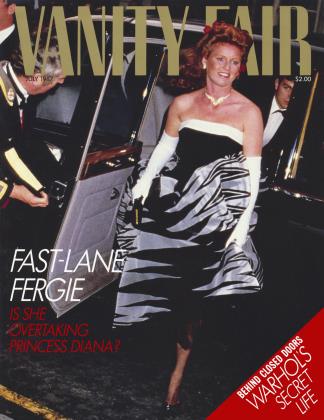Sign In to Your Account
Subscribers have complete access to the archive.
Sign In Not a Subscriber?Join NowMan Ray
FLASHBACK
Vanity Fair, November 1922
Man Ray is such an evocative Paris-in-the-twenties moniker, a Manhattan restaurant has been named after him. At least it's catchier than the multisyllabic mouthful he was horn with in 1890 in Philadelphia: Emmanuel Rudnitzky. An unsuccessful painter in New York, Man Ray took off in 1921 for Paris and the avant-garde (Andy Breton, Tristy Tzara, Jimmy Joyce, and Gertie Stein). He developed into an innovative photographer, and in 1922, the year after he accidentally invented them, Vanity Fair published his early "Rayographs" (shown here with his self-portrait). Cocteau raved about these Cubist exposures of everyday objects on sensitized paper, calling them "mindless masterpieces." When the Nazis took Paris, Man Ray escaped to Hollywood, went skinny-dipping with Henry Miller, and married his model Juliet in a double wedding with the Max Ernsts. Still misunderstood in America, he returned to Europe and died there in 1976. Now his art—sculpture, paintings, and drawings—is beginning to get the recognition he always sought. The Getty Museum in Malibu will show his rare early photographs from July 7 through September 6.
 View Full Issue
View Full Issue






Subscribers have complete access to the archive.
Sign In Not a Subscriber?Join Now